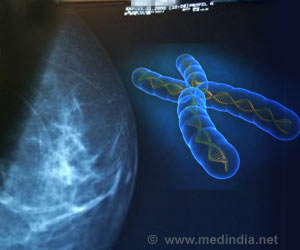
Clinically these disorders can present at any time of life, are often seen in association with neurological impairment, and cause chronic disability and premature death. The diagnosis of mitochondrial disorders remains challenging, according to background information in the article. Examples of problems caused by mitochondrial diseases include a type of epilepsy; mitochondrial encephalopathy; lactic acidosis; and a syndrome that includes stroke-like episodes.
Robert W. Taylor, Ph.D., F.R.C.Path., of Newcastle University, Newcastle upon Tyne, U.K., and colleagues studied whether a whole-exome sequencing approach could help define the molecular basis of mitochondrial disease. Whole-exome sequencing is a complex laboratory process that determines the entire unique sequence of an organism's exome (the collection of exons, which are relatively small lengths of a whole genome and contain instructions for the body to build proteins).
The study included 53 patients, referred to 2 national centers in the United Kingdom and Germany between 2005 and 2012, who had biochemical evidence of multiple respiratory chain complex defects. The majority (51/53 [96 percent]) of the patients presented during childhood (<15 years old) and most (66 percent) developed symptoms within the first year of life. The most frequent clinical features were muscle weakness, central neurological disease, cardiomyopathy, and abnormal liver function; a combination of these abnormalities was present in most cases.
Following whole-exome sequencing, presumptive causal variants were identified in 28 patients (53 percent) and possible causal variants were identified in 4 (8 percent). Together these accounted for 32 patients (60 percent) and involved 18 different genes. Distinguishing clinical features included deafness and kidney involvement associated with one gene, and cardiomyopathy with two genes. In 20 patients with prominent heart disease, the causative mutation was detected in 80 percent, while the detection rate was much lower in patients with liver disease (33 percent). It was not possible to confidently identify the underlying genetic basis in 21 patients (40 percent).
"In the pre-exome era, the systematic biochemical characterization of 53 patients with multiple respiratory chain complex defects led to detection of the underlying genetic basis in only 1 patient. The work presented herein demonstrates the effect of whole-exome sequencing in this context, which has defined the genetic etiology in 32 of 53 patients (60 percent) with a confirmed biochemical defect," the authors write. "Our findings contrast with large-scale candidate gene analysis using conventional and next-generation sequencing approaches, both of which had a lower diagnostic yield (10 percent-13 percent) and by definition did not discover new potential disease genes."
Advertisement
Source-Newswise















